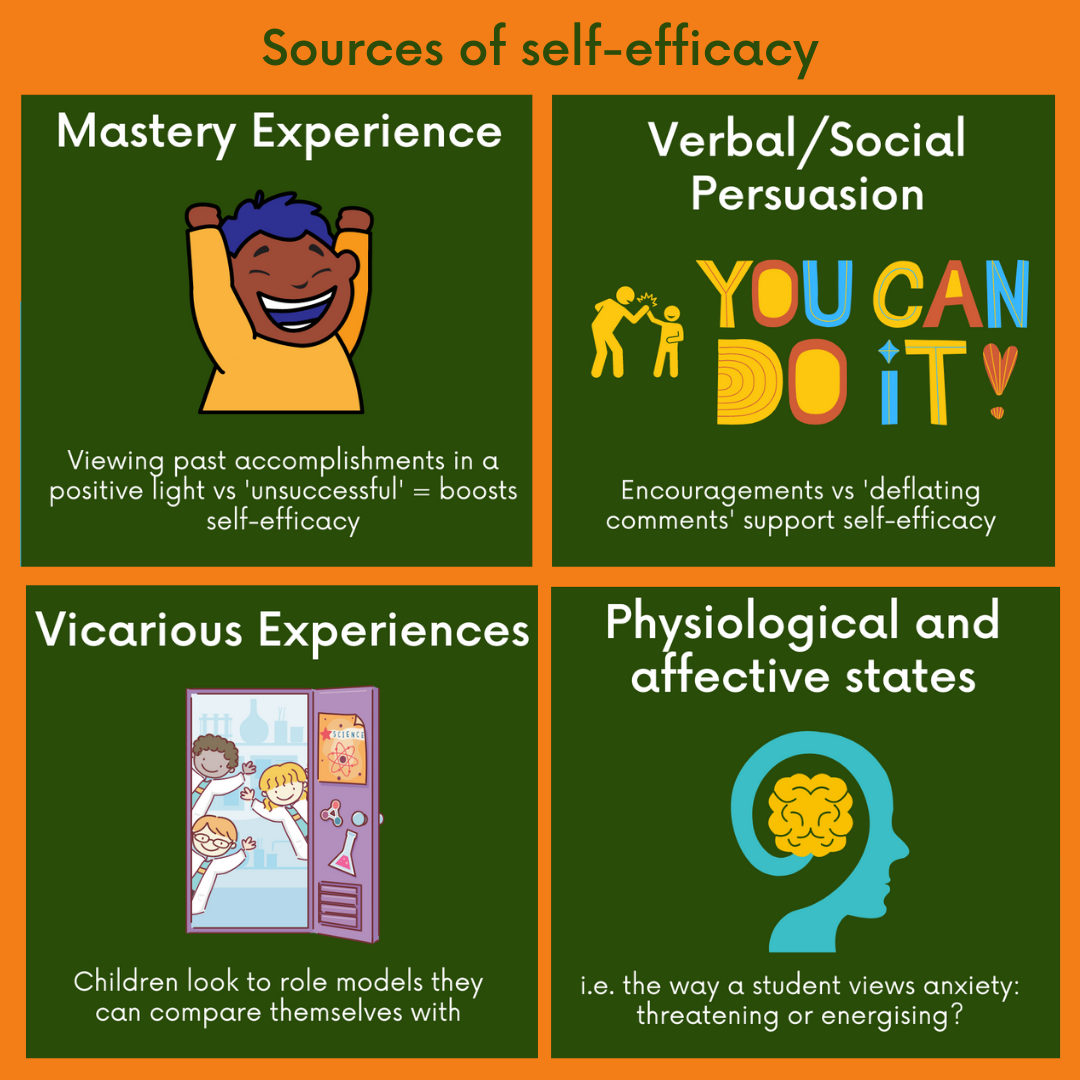
In this blog post, we'll cover what is self-efficacy and why we at Ambessa Play, care so much about enhancing your children’s science self-efficacy.
Definition:
Self-efficacy: One’s perceived ability to learn new skills and succeed in a task one sets oneself (Bandura, 2001)
An example of a child with high self-efficacy would be: a child who signs up for an activity with limited knowledge of the area, but feels that they can learn and thrive.
High self-efficacy is linked to motivation, effort, resilience whereas lower self-efficacy is linked to shyness, low aspirations, anxiety, stress, pessimism.
Self-efficacy is built upon the social cognitive theory which suggests that predispositions and the environment a person lives in, influences beliefs and thus behavioural outcomes i.e. achievement (Bandura, 1986).
This sounds like self-esteem?
- Self-esteem: An individual’s sense of self-worth/value
- Self-efficacy, however, is about the confidence of your ability to achieve a task, to persist despite setbacks
What are the four sources of self-efficacy?
- Mastery experience: experience overcoming obstacles to achieve the goal / evidence of mastery
- Vicarious experience: Seeing someone else you identify with, achieving your aims
- Verbal persuasion: encouragement from people you respect
- Physiological/emotional reaction: positive experience / mental state
Why we care:
Students’ perceptions of their capability can influence performance and academic or career choices later in life (Pajares & Urdan, 2006). We want to provide children with educational and enjoyable interactions building our STEM (Science, technology, engineering and math) kits.
How we translate this in our boxes/experiences:
|
Self-efficacy source |
Ambessa Play's commitment |
|
Mastery experience |
Mastery through knowledge, tools, autonomy when building our kits. |
|
Vicarious experience |
Demonstration of diverse STEM role models for comparison [to the child]. |
|
Verbal persuasion |
Positive self-statements embedded in our material. |
|
Physiological/emotional reaction: |
We're working on a mental health/biology kit based on managing anxiety and language around emotional states. |
As we grow, we will continue to find better ways to measure how we meet this aim.
We know that mastery experience is a particularly powerful source of self-efficacy We keep this in mind in our product development and aim to enable or encourage children to interpret their science abilities as incremental.
Thank you for learning more about self-efficacy!
References:
Bandura, A. (1986). Social cognitive theory of human development. In T. Husen, & T. N. Postlethwaite (Eds.), International encyclopedia of education (pp. 5513–5518). (2nd ed.). Oxford: Pergamon Press.
Bandura, A., Barbaranelli, C., Caprara, G. V., & Pastorelli, C. (2001). Self‐efficacy beliefs as shapers of children's aspirations and career trajectories. Child development, 72(1), 187-206.
Chen, J. A., & Usher, E. L. (2013). Profiles of the sources of science self-efficacy. Learning and Individual Differences, 24, 11-21.
Pajares, F., & Urdan, T. (2006). Adolescence and education: Vol. 5. Self-efficacy beliefs of adolescents.

